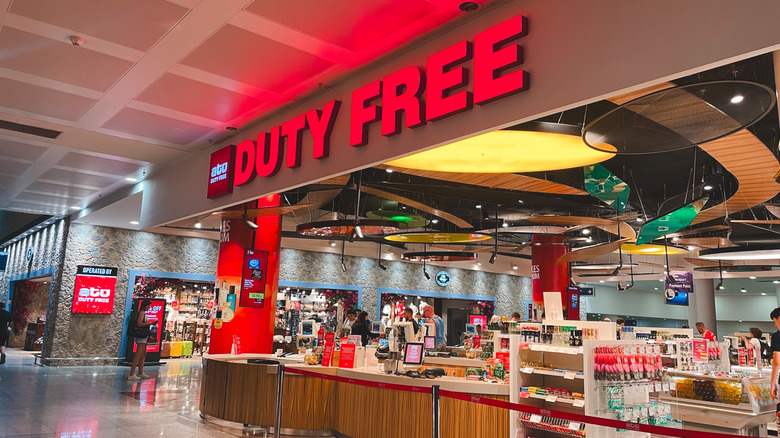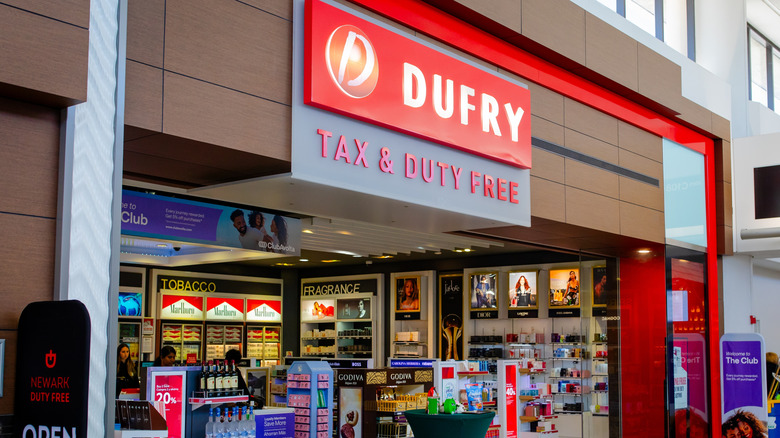Duty Free Savings Doesn't Mean What You Think It Does
If you have ever flown through an international airport or seaport, you might have come across a store selling duty free items. Visiting one of these shops, you might be tempted to buy a few items due to the seemingly lower cost than a regular store. While "duty free" might sound like a discount off the price tag of your purchase, in actuality it is the ability to buy something free of import, value-added, sale, or additional taxes. If you have resolved to stop making major money mistakes while traveling, double check your duty free purchases.
There are some exemptions for Americans. Any citizen of the United States, depending on where they have traveled, could get $200, $800, or $1,600 in tax exemptions, allowing a designated amount of spending in foreign countries and across international borders that will not be taxed upon re-entry to the U.S., according to U.S. Customs and Border Protection. Spending beyond those exemption amounts, particularly on controlled products like alcohol and tobacco which have the best savings, might require the traveler to make a declaration at the American border, at which point a tax may or may not be issued on their duty free goods. For travelers who are unfamiliar with what duty free actually means, be careful of how much and what you buy in these stores, they could end up being unnecessary travel purchases on vacation that you should avoid in order to save money.
Best practices for shopping at duty free stores
There are plenty of common airport mistakes that will cost you money during your travel — don't make duty free shopping one of them. Some of the most popular items sold at duty free retailers are perfumes, alcohol, cigarettes, and candy, especially chocolate. There is a limited quantity of duty free goods you can bring with you across international lines, so verify the rules and regulations of any country you plan on visiting, including the value and amount. For example, Travel and Leisure highlighted that refunds might be requested prior to departing the EU zone for valued-added taxes or products and services to qualifying non-European residents.
Another way to shop duty free and save some money is by using a credit card that does not have a foreign transaction fee applied to it. If purchasing a liquid, make sure it adheres to the carry on rules of the airline or sea vessel you are traveling on to your next destination, otherwise you might have to leave your bottle behind. Lastly, take the time to compare and contrast the price of your potential purchase using sites like Shop Duty-Free. Just because goods are duty free does not necessarily mean they are discounted, and you could find a better price at a local shop in your destination without having to worry about the regulations and allowances upon your arrival.

